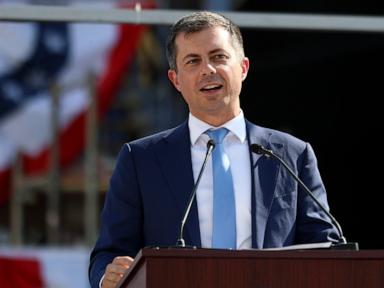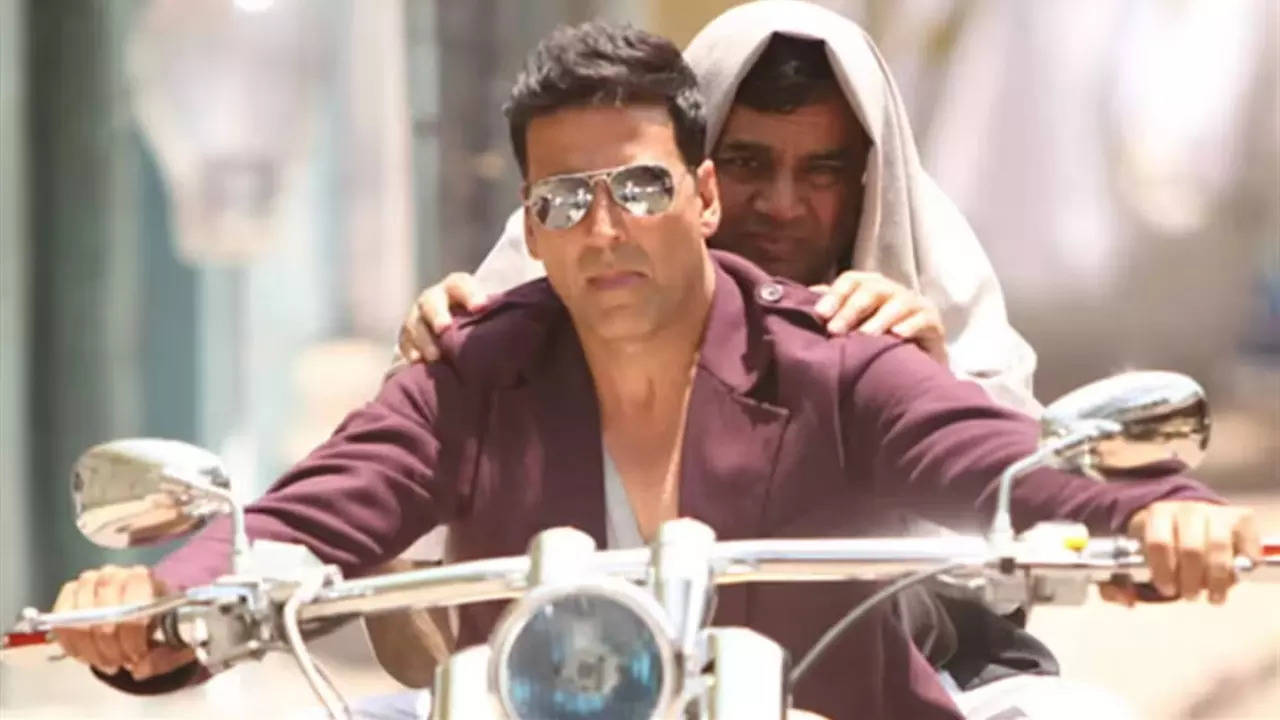
While Lake Michigan isn't known for massive waves, political developments in Michigan last week look likely to make a sizable splash in the 2026 election cycle. Democratic Sen. Gary Peters announced on Jan.
28 that he would not seek reelection, leaving Democrats without an incumbent to defend a pivotal Senate seat in a state that has consistently ranked as one of the most competitive in the country. Peters's departure has rocked the Wolverine State's collective boat. His decision stands to affect not only a battleground Senate contest, but also control of the Senate, multiple individuals with presidential aspirations and the potential rise or fall of some other notable figures in Michigan politics.

A number of high-profile potential contenders may jump into the race to succeed Peters, and their choices could in turn influence the decision-making of other would-be candidates — both for this seat and others in the state. Coupled with the state's open gubernatorial race — Democratic Gov. Gretchen Whitmer is term-limited — aspirants eyeing higher office in Michigan have many courses to sail, but they'll need to tack wisely in the gusty weather ahead.
Even before Peters's retirement, his Michigan seat already looked like one of the marquee Senate races in the 2026 midterm elections . That's because President Donald Trump narrowly carried Michigan in the 2024 election, making it one of two Trump-carried states where Democrats must defend a Senate seat (the other is Georgia). Tellingly, this purple turf has regularly produced close Senate races during the Trump era: Dating back to the 2016 election, Michigan's Senate contests have had the second-closest average margin (2.
8 percentage points) of any state in the country, trailing only Nevada (2.5 points). In 2024, now-Sen.
Elissa Slotkin, a Democrat, barely edged out former Rep. Mike Rogers, a Republican, by 0.3 percentage points (48.
6 percent to 48.3 percent). In an election cycle where the political winds were at Republicans' backs, Slotkin won thanks in part to the fact that some Trump voters chose to split their tickets, vote third party or skip the Senate race entirely — Slotkin won about 24,000 fewer votes than former Vice President Kamala Harris, but Rogers won about 123,000 fewer votes than Trump.
Four years earlier, in 2020, Peters won reelection in a squeaker of his own, defeating Republican John James (now a House member) by 1.7 points. In 2018, meanwhile, Democratic Sen.
Debbie Stabenow won by a comparatively comfortable 6.5-point margin over James in the Republican's first statewide bid. That said, Michigan's competitiveness in recent elections belies the state's 30-year streak of electing only Democrats to the Senate (the last Republican to win was Spencer Abraham in 1994 ).
Although he had a close call in 2020, Peters's departure surprised many partly because the second-term senator is only 66 years old , putting him right around the median age of the increasingly aged Senate . But if Peters planned to leave Congress's upper chamber, it's not a shock that he announced this early in the election cycle: Retiring senators these days tend to declare their departures earlier than they once did, partly due to the increased necessity of raising lots of money. Senators may not want to commit a huge portion of their time to bringing in campaign cash if they are considering leaving office, and they also want to give potential successors time to raise money to defend the seat for their party.
Peters may also hope that, even in an open-seat race, Democrats will benefit from the midterm political environment, which often sees the presidential party fare poorly . Although the GOP made gains in the Senate in Trump's first midterm back in 2018 , those wins mostly came in solidly red states, and Democrats flipped two highly competitive Senate seats in Arizona and Nevada while also flipping 40 seats in the House. It's also been hard for the president's party to flip seats held by the opposition party in states that the president carried by fewer than 5 points: That's happened in just three out of 13 analogous situations in midterms from 1994 to 2022.
Beyond the Senate balance, though, the slate of Democrats who do — or don't — get into the 2026 Michigan Senate race could also tell us a lot about the 2028 Democratic presidential primary. Whitmer, easily the biggest Democratic name in the state, immediately said that she wouldn't seek the Senate seat — just the latest sign that she's preparing a possible White House run . However, another Michigander with presidential ambitions seems more likely to jump into the Senate race: former Secretary of Transportation Pete Buttigieg, who became nationally known during his 2020 run for the Democratic presidential nomination.
In 2022, the onetime mayor of South Bend, Indiana, which sits just south of the Michigan border, moved to northern Michigan , home of his husband's family. This raised the prospect that he might eventually make a run for office in the Wolverine State, more Democratic-friendly turf than red Indiana. A Senate run would seemingly make a presidential run less likely for Buttigieg — that would mean challenging back-to-back campaigns , the first in a state he only recently moved to, followed by a difficult and expensive national effort.
Still, a Buttigieg Senate campaign seems quite possible: The Detroit News reported this past weekend that Buttigieg had switched his focus to a Senate bid after deciding against a run for Michigan governor. Given his Indiana roots , a Buttigieg bid would spark "carpetbagger" criticisms from primary rivals and Republicans, but his national profile would surely hand him a powerful fundraising base for his campaign. Some high-profile Senate candidates who've moved states have seen success, like Robert Kennedy Sr.
in 1964 (the longtime Bay Stater won in New York), Hillary Clinton in 2000 (one-time Arkansan won in New York) or Mitt Romney in 2018 (former Massachusetts governor turned Utah senator). Other recipients of the carpetbagger label have met defeat, though, like former Massachusetts Sen. Scott Brown in 2014 (New Hampshire) or Mehmet Oz in 2022 ( New Jersey homeowner lost in Pennsylvania).
Buttigieg's eventual decision could affect the choices of potential rivals. In particular, two Democratic House members, Reps. Haley Stevens and Hillary Scholten, are eyeing the Senate race .
Stevens has held a blue-leaning seat in suburban Detroit since 2018, while Scholten has held her own blue-leaning House seat around Grand Rapids since 2022. Wayne County Health Director Abdul El-Sayed has also made his interest known ; he finished second behind Whitmer with 30 percent in the 2018 Democratic primary for governor. Similarly, a spokesperson for state Attorney General Dana Nessel told National Journal’s Hotline that she is exploring a run.
And last week Politico reported that state Sen. Sarah Anthony is looking at the race, as is Matt Sahr, who leads the state firefighters union. However, state Sen.
Mallory McMorrow looks set to become the first Democrat to formally throw her hat in the ring, per the Associated Press . McMorrow may be best known from a floor speech she made in 2022 that went viral , in which she pushed back against a Republican colleague who had sent out a fundraising email accusing McMorrow of being a "groomer" who wanted to sexualize children. McMorrow's anticipated entry would also be notable because she hails from the same suburban Detroit area as Stevens, so it's worth monitoring to see if Stevens announces a run and McMorrow opts instead to run for Stevens's House seat — a type of political musical chairs that we've seen many times before.
One other Democrat who looks likely to stay out of this race is Lt. Gov. Garlin Gilchrist, who appears more likely to make a bid for governor .
The possibility of running for governor has added another, historically unusual complication to the decision-making process for potential candidates: With Whitmer term-limited, Michigan has open-seat races for governor and Senate in the same election cycle for the first time since the advent of popular elections for the U.S. Senate in 1913.
Gilchrist isn't the only Democrat eyeing the gubernatorial race either, as Secretary of State Jocelyn Benson has announced a run and Detroit Mayor Mike Duggan, a longtime Democrat, has said he will run as an independent . For the GOP, James seems inclined to run for governor , which could clear the primary field in that race. After all, a recent poll from Republican pollster OnMessage, Inc.
found him garnering nearly half the primary vote against a hypothetical list of GOP alternatives. Still, we can't rule out James taking a third shot at the Senate: After Peters announced his retirement, James posted on X that "Brighter days are ahead for Michigan!" Beyond James, there's been comparatively less action in the Republican field for Senate. The one thing we do know at this point is that Rogers is readying another campaign after narrowly falling to Slotkin last November.
Considering his close loss, Rogers will start out with more name recognition and may once again attract ample outside monetary support like he did in 2024 . But other names may also be in the mix, such as Rep. Bill Huizenga and businessman Kevin Rinke , who finished second in the 2022 Republican primary for governor.
Conservative commentator Tudor Dixon, whom Rinke lost to in 2022, has also expressed interest . It remains to be seen what additional ripples might affect the Michigan Senate race in the months ahead. But both parties will hope that the tide comes in on their side in 2026.
.















